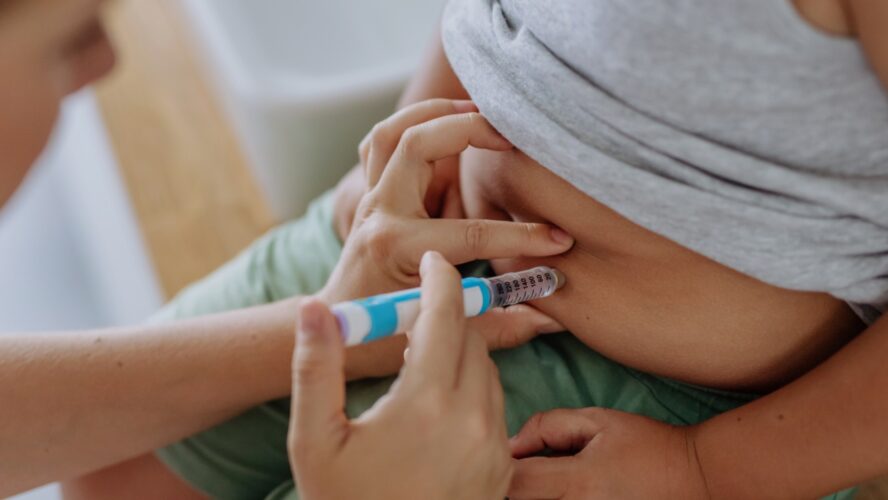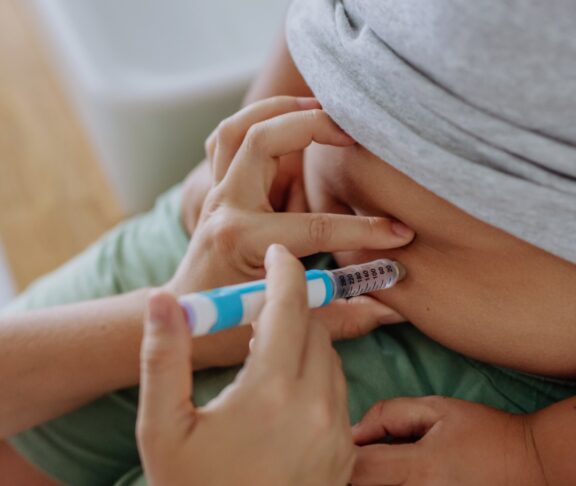
Karen Addington MBE
CEO, Breakthrough T1D
Every week, across the UK, children are admitted to hospital with diabetic ketoacidosis (DKA), a life-threatening type 1 diabetes complication that’s often the first sign they have the condition.
A child might seem more tired than usual, ask for more drinks, go to the toilet more and look a little thinner. It’s easy to miss, until suddenly, they’re seriously ill.
It doesn’t have to be this way
Type 1 diabetes is an autoimmune condition that can affect anyone, at any age. However, children are far more likely to be diagnosed in emergency settings, often only after their health has rapidly declined. For families, it’s a terrifying experience that can leave lasting emotional scars. Many parents carry the shock and guilt of not knowing the signs, long after the hospital stay ends. Tragically, we also know that not every child survives DKA.
We now know that type 1 diabetes can be detected before symptoms appear through a simple blood test. It gives families time — time to understand what’s happening and prepare for what’s ahead.
At Breakthrough T1D, we believe no parent should have to hear the words ‘your child has type 1 diabetes’ in a life-threatening situation. That’s why we’re calling for a national early detection pathway that makes screening and support available to every family at risk. With early detection, families can receive ongoing support and one day, access the treatments that could delay the need for insulin. What could have been a crisis becomes a moment of clarity with time to plan.
Studies we’re funding are already giving families the chance to take part in early detection research today. These studies are shaping what a national screening programme should look like and offer hope to families right now.
Type 1 diabetes is an autoimmune condition that can affect anyone, at any age.
Know the 4Ts
While we work towards a future where early detection is routine, there’s something everyone can do today — learn the 4Ts: Toilet, Thirsty, Tired, Thinner, which are the key warning signs of type 1 diabetes. Spotting them early and seeking medical help could save a life.
Together, we can change the way type 1 diabetes is diagnosed.


